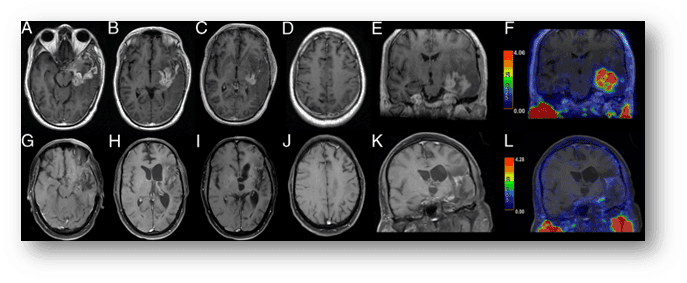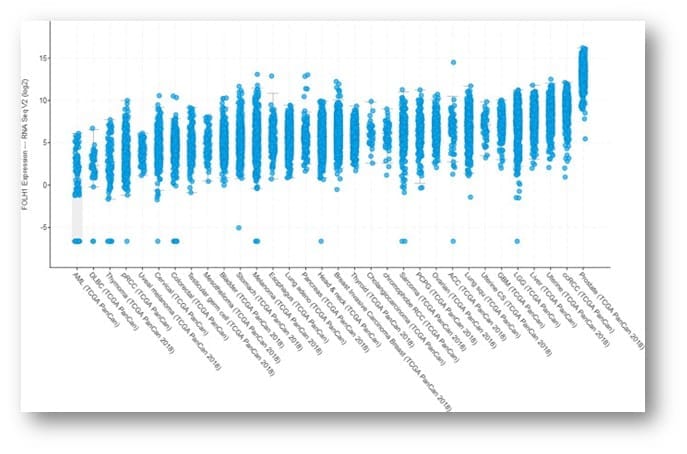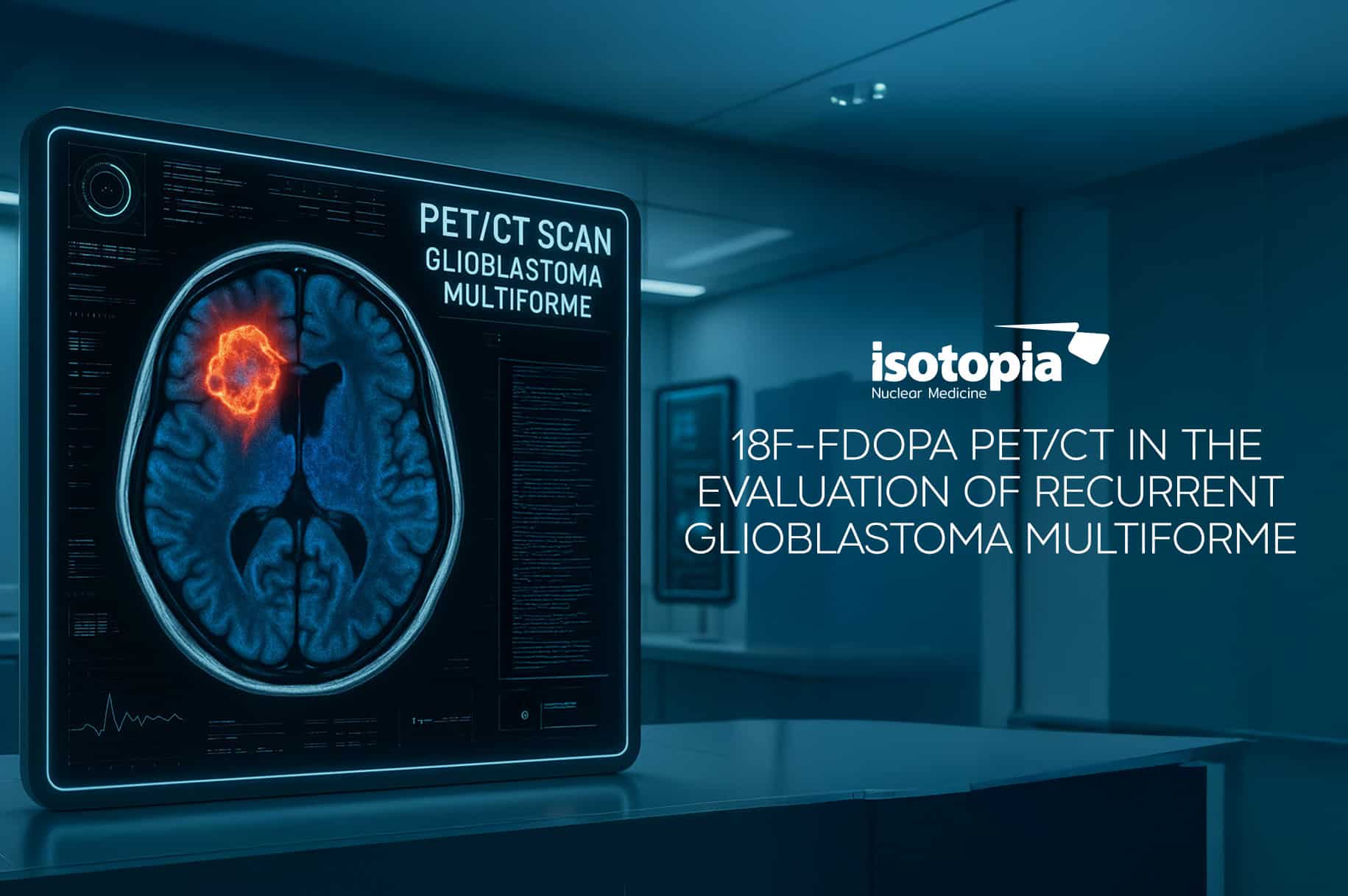The role of PSMA theranostics in treating prostate cancer is well known.
Non-prostatic diseases exhibiting a PSMA uptake on PET are becoming more common as the number of performed scans increases. It is important to recognize the specific tumors that exhibit PSMA avidity since the theranostics approach could be applied to those tumors as well.
For example:
Glioblastoma multiforme brain tumor [1].
A 37-year-old man was treated for left temporal glioblastoma multiforme (GBM) by surgery, radiotherapy, and chemotherapy. His disease progressed with a lesion extending to involve the left gangliocapsular region posteriorly with perilesional edema and leptomeningeal enhancement (A–E). After being denied surgery and radiation therapy and due to financial constraints limiting bevacizumab therapy, the patient was scanned with 68Ga–prostate-specific membrane antigen (68Ga-PSMA-11). Fused 68Ga-PSMA PET/MR images demonstrated intense PSMA expression in the tumor.
He underwent three cycles of 3700 MBq 177Lu-PSMA-617 therapy at two monthly intervals with no significant adverse events in the post-treatment period. Post-therapy MRI (G–K) and fused PET/MR (L) showed significant reduction in lesion size with minimal residual enhancement and PSMA expression with no new lesion elsewhere. Lu-/Ga-PSMA theranostics has potential in patients with recurrent glioblastoma multiforme when other therapeutic options are not feasible.

Recent reviews [2, 3] describe the current knowledge of PSMA expression in other solid cancers and introduce the first clinical reports of non-prostate cancer patients treated with PSMA radioligand therapy (PSMA-RLT).
The following figure lists the cancer types and their corresponding PSMA expression encoded by the FOLH1 gene.

All cancers show a large variation in FOLH1 (PSMA) expression levels. But in the era of precision and personalized medicine, it is expected that patients suffering from those tumors with progression of their disease will be assessed for the possibility of being treated with PSMA-RLT.
This review includes clinical reports and studies on PSMA-RLT in different solid tumors, specifically on salivary gland cancer, glioblastoma, thyroid cancer, renal cell carcinoma, hepatocellular carcinoma, lung cancer, and breast cancer.
The promising results of PSMA-RLT in prostate cancer emphasize the importance of assessing the potential role of PSMA-RLT for other solid cancer types.
References:
- Kumar A, Ballal S, Yadav MP, et al. 177Lu-/68Ga-PSMA Theranostics in Recurrent Glioblastoma Multiforme: Proof of Concept. Clinical Nuclear Medicine. 2020 Dec;45(12):e512-e513. DOI: 10.1097/rlu.0000000000003142. PMID: 32558721.
- Uijen MJM, Derks YHW, Merkx RIJ, et al. PSMA radioligand therapy for solid tumors other than prostate cancer: background, opportunities, challenges, and first clinical reports. European Journal of Nuclear Medicine and Molecular Imaging. 2021 Dec;48(13):4350-4368. DOI: 10.1007/s00259-021-05433-w. PMID: 34120192; PMCID: PMC8566635.
- de Galiza Barbosa, F., Queiroz, M.A., Nunes, R.F. et al. Nonprostatic diseases on PSMA PET imaging: a spectrum of benign and malignant findings. Cancer Imaging 20, 23 (2020). https://doi.org/10.1186/s40644-020-00300-7

Haim Golan
MD MSc
Chief Medical Officer
Isotopia Molecular Imaging LTD






